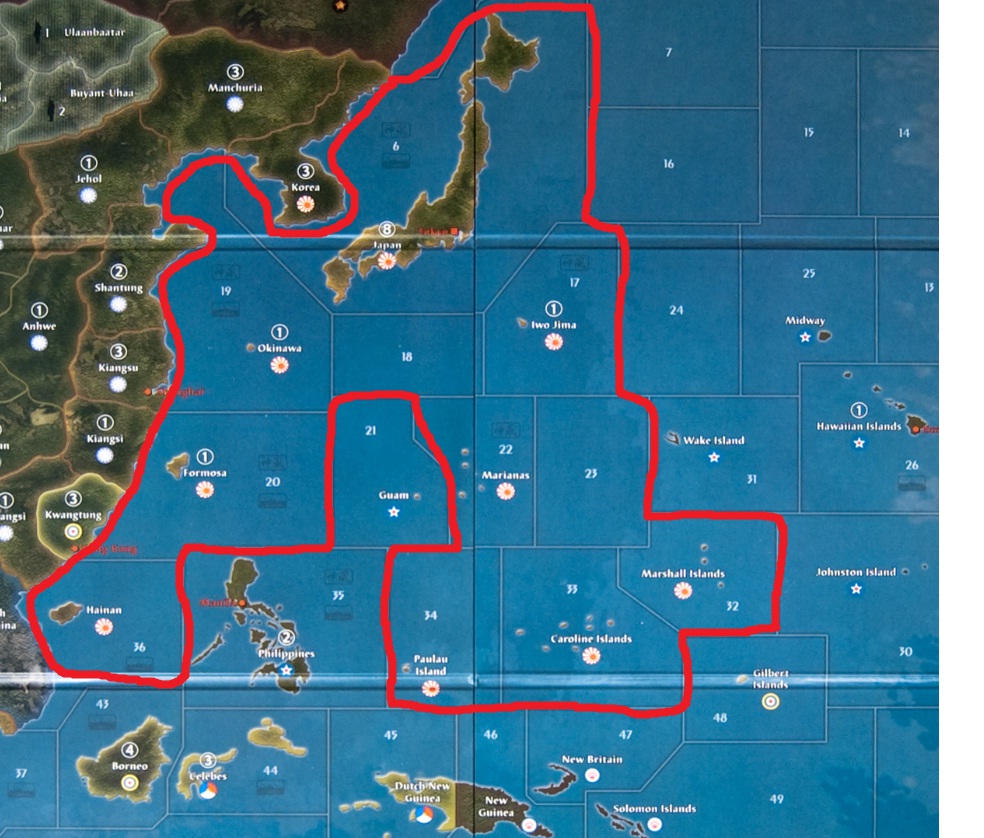A few posts back it was mentioned these islands have no value because they have no resources or what not, which is true yes. But they have a value that is hard to see unless you look closely. That being, the sense of security for a power that controls, and knows it controls an entire string of islands. A large part of the pacific war was trying to find out who even controlled what islands. After Pearl Harbor, the Japanese sent a second reconnaissance/attack force and were using the French Frigate Shoals as a staging ground. This botched attack revealed to the Americans that the Japanese had been using the area as a rendezvous point and the Americans occupied it later in the year. The point comes when you combine this with the fact that Allied shipping had to be wary of Japanese air units finding them and attacking them or relaying their positions as forces drew nearer to Japan itself. Control of all the atolls and islands and what not gave your forces an advantage in that they could operate without the fear of being spotted by Japanese air power because you have denied to them the ability to operate in the area. Later in the war, this became less of an issue as Japan couldn’t fuel or operate the necessary network of observation planes to keep up that sort of a net, and island hopping became the US strategy. It was no longer critical to control every pile of sand that stuck out of the water because the Japanese simply didn’t have the resources to use them as observation posts.
So my point is, the value you are getting from the enemy NOT having islands to land on is that your forces in the rear areas can steam at full speed, and fuel doesn’t need to be wasted escorting them with convoys. Now in the game, the limits of air units movements represents this to a degree. But only for units we can actually touch. In reality, there are all sorts of things happening in the game that aren’t being represented with plastic pieces. Supplies are moving to your fleets at sea, while raw materials are moving back to your factories from far flung possessions. So the idea of awarding IPCs for control of worthless islands is not far fetched. We already have this happen with the Japanese NO for control of Guam, Midway, Wake, Gilberts and Solomons.
If you really want to stimulate combat over islands then we need to change that NO, and likely add a new US NO to do the same.
What I had proposed ages ago went something like this:
Japan (replaces Guam, etc. bonus)
1. Collect 5 IPCs per turn if Japan controls any 8 Pacific islands that have no IPC value.
Theme: Strategic outer defense perimeter.
United States
1. Collect 5 IPCs per turn if the United States controls any 8 Pacific islands that have no IPC value.
Theme: Islands considered to be vital strategic forward bases.
The US starts with 6 qualifying islands (Guam, Wake, Midway, Johnston, Line, Aleutians)
Japan starts with 5 qualifying islands (Paulau, Marianas, Carolines, Marshalls, Hainan)
Japan can take US islands, or UK or ANZAC islands to boost their number, but the US can only liberate it’s own, or take them from Japan. This leads to a cat and mouse game chasing each other around the pacific, which is what you guys are after right?







